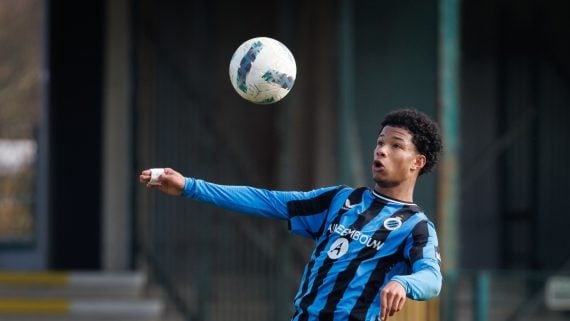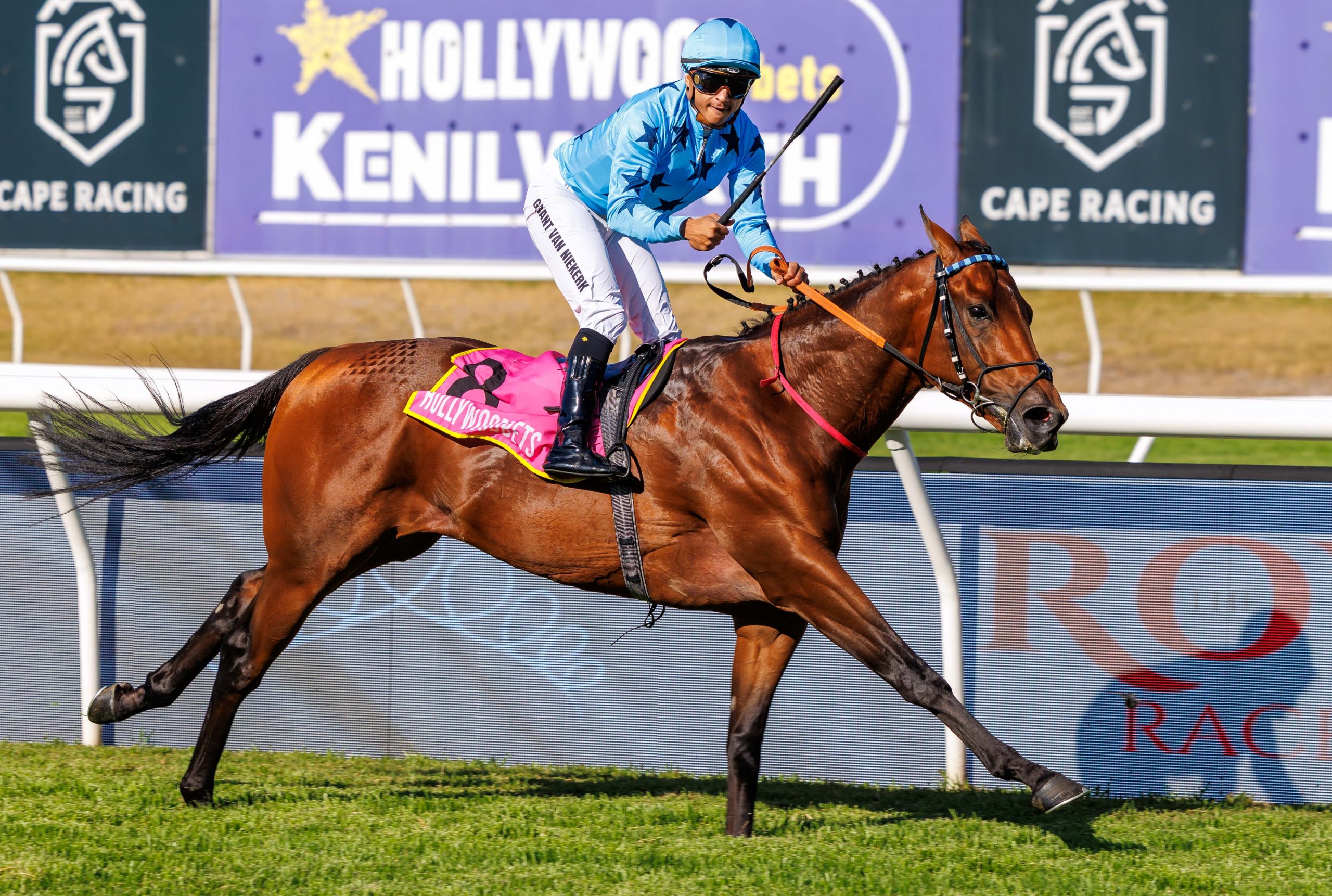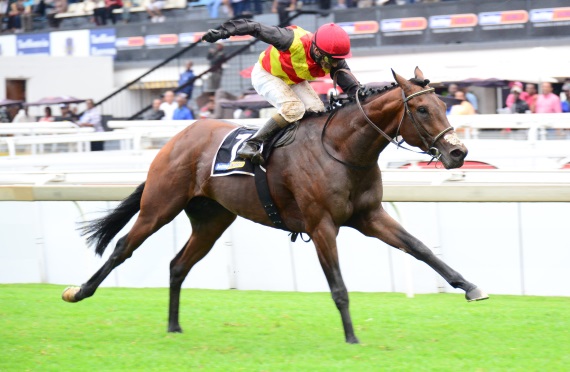
Louis thunders home in the Guineas
I was recently teased by a friend that I was concentrating more on my ‘non racing’ interests these days. It was a factual observation, meant in good spirits, but it got me thinking about how we categorise people (and horses). If you are not a sprinter, then you must be a miler (or a stayer). If you are not racing, then you must be a ‘happy hacker’ and if you tell a jockey or a trainer about one of their horses that is now doing something competitive, they usually find the first excuse to scarper.
I’m poking fun obviously, but as with all words spoken in jest, there is just a little feeling behind it. I’m not just talking about racing folks. The same divides exist between dressage and jumping and eventing and just about any discipline you care to mention. It is interesting, given the fact that we are all supposedly horse people underneath. If a good horse can’t be a bad colour, then surely a good horse cannot be bad (or worse, irrelevant!) because of its discipline?
To get back to my friend and their comment again. I have horses because I like horses. Period. I like them when they’re little and I like them when they’re grown up. I like them when they’re racing as well as when they aren’t. A horse, and a Thoroughbred perhaps more so than most, has to be a great many things during its lifetime. It has to be a commercial prospect in terms of the bloodlines it carries, and it has to be a satisfactory physical specimen to please the sales inspectors. It then has to be a showpiece to please prospective buyers. Then it has to be an athlete and fall into one of the myriad categories we dream up for them on the track – juvenile, classic horse, sprinter, miler, stayer, grass horse, sand specialist. The list goes on. Afterwards, they’re either stud material (assuming they’re any good and have survived with the family jewels intact) or they have to find other ways of making themselves useful. I like all of these aspects and in my opinion the best horses can do a little bit of everything and I like doing a bit of everything with them.
Why Thoroughbreds?
Tesio is credited with saying, “The Thoroughbred exists not because its selection has depended on experts, technicians or zoologists but one piece of wood: the winning post of the Epsom Derby” and he is correct. The Derby has greatly influenced the breed with past winners including Hyperion, Sea Bird II, Sir Ivor, Nijinsky, Mill Reef, Roberto and Shirley Heights. However, humans being what we are, are seldom satisfied. Having selectively bred a horse for the Derby distance, we now want a versatile horse that can be effective over a variety of trips. That is pretty tricky to achieve, but the harder something is to do of course, the more people want to do it. And so to the Triple Crown.
26 April 2014. It is not billed as ‘Champions Day’ for nothing. The day features a bumper 10 race card of which no less than 9 are graded races. That’s great entertainment by anyone’s standards. Of course we also go into the last leg of the Triple Crown with a live contender for the throne (and the R2 million bonus) in Louis The King.
It is wonderful for all the connections and a huge thrill for racing fans, but it is also wonderful for the sport, particularly given the challenges that racing faces, to have this wonderful event, this wonderful horse and this wonderful story to market our sport. Looking at the rosters of winners around the world, Triple Crown races are king makers. If one considers that Northern Dancer would be classified as a ‘failed’ Triple Crown candidate, it seems even the ‘also rans’ become breed shapers. It’s an awful lot of pressure to put on 3yo shoulders. I caught up with Geoff Woodruff to see how the nerves were holding up.
Geoff Woodruff

Geoff Woodruff
How does it feel to have a Triple Crown contender? “Nobody even wants to think about it too much. You know, you can fret and worry and it’s not going to change anything. You’ve just got to do your work, that’s all. Louis is so fit now, he’s a picture of health. I just intend to keep it at that. Louis is Louis. We’re looking after him the same as the others. Robbie comes on Monday and basically it’s just business as usual from now till then. We’re watching everything obviously. We’ll take the routine blood tests and just treat things the same way. Obviously we’re keeping the security nice and tight.”
When did you realise he was something out of the ordinary? “We knew he was a nice horse, but we just sent him out first time expecting to see a nice run. Then he showed us that!”
What is Louis like to work with? “He’s pretty calm. He only really gets on his toes once his blood gets up and that’s usually when the jock gets on, but that’s understandable. Louis is still a baby, but he’s an intelligent horse and he looks after himself.”
I am told that the Black Minnaloushes can be difficult? “I don’t really know them all that well, but I’ve had to say that I’ve found the exact opposite. I’d describe him as a modest, unassuming sort of character. He’s not flashy, but he’s a handsome colt obviously. He’s sensible, quiet, easy-going, happy really! And being such a pleasant natured horse on top of everything adds something too. He’s still entire, but he’s not coltish and he doesn’t shout. He’s a really well-mannered horse and just one of those guys who gets on with the job.”
What about the detractors saying he won’t see out the trip? “I was the one who said in the first place that on pedigree he shouldn’t stay. All I can say is people who’ve watched him race can make up their own minds. He sits at the back, he looks after himself and he doesn’t pull. Robbie has felt, even as far back as the Guineas, that he wants further. That may or may not be correct, but he feels very confident.”
When asked for advice on how to deal with horses, Monty Roberts often answers “The horse will tell you.” Frustrating as that may sound, he’s generally correct, but it takes an exceptional horseman firstly to listen and secondly to have the courage to act on what they hear. Of course, should Louis not win on Saturday, there will be plenty of critics saying “I told you so” and that’s fair enough. They may well be right. But the fun thing is that they may not. Facts are all very well, but just occasionally life hands us a fairy tale, or at least the prospect of one, and here we are. Because Louis has made it. It could all have been so different, but from rather obscure beginnings, he has been blessed with good genes, a chance encounter with a trainer who was not looking to buy, but gave him a chance anyway and who above all has ignored the paperwork and listened to the horse. That awful-wonderful stomach-churning dread and anticipation in the run up to a race is a feeling like no other and I’ll trade being right for hope any day of the week !
The “Maine” Chance
Our stud folk are all trying to navigate the madness of the sales, but I asked Maine Chance manager John Slade how they are feeling about their resident stallion having a Triple Crown prospect. “Shooeh – and you can quote me on that!” – he quips. “It’s a bit overwhelming really. The big thing for us is that we try to produce a classic type of horse and of the things we aim to achieve, Louis really ticks all the boxes. The Triple Crown is a very stiff test and you need a truly versatile horse to be able to do those 3 distances within that 8 week period. As a 3yo it is the ultimate test and I think the fact that it’s only ever been done once in this country is testament to that.”
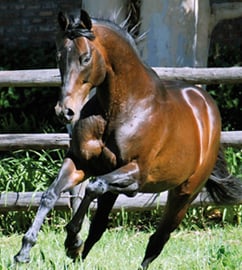
Black Minnaloushe
“It’s a rare achievement and if we can pull it off, will be an absolute milestone in our breeding industry in SA and obviously for the stallion. And it’s quite conceivable that he could do it. Blackie has produced a champion sprinter and horses that can go a distance, so we’ll see whether this might be an all in one horse. To have top speed and staying ability in one horse would be the achievement of a lifetime. It would be a great big ostrich feather in Blackie’s cap if he can do that !
How does he compare to his champion neighbour? “You simply can’t. Silvano is the consummate statesman. He’s everyone’s friend and father and you can go and confide your woes with him and tell him your stories. Blackie has the opposite appeal – he’s got that brilliant, edgy ‘otherness’ that people can’t help being fascinated by. He’s a totally different horse. But therein lies his strength. It is that Storm Cat fire that one can use to inject blood and quality to the quieter, more phlegmatic types. As an example, we recommended him for Jamaica. She was that steady, relentless, galloping type of horse who just went out there and wore the opposition down into the ground. She needed some fire and spirit and out of all the available bloodlines, the Storm Cats can offer that. Most distance horses are placid and dour – to produce brilliance, you need a bit of spark and fire and Storm Cat can supply it. To be able to have that in a classic distance horse, now that is a really fantastic element.”
It seems Tesio agrees. “To maintain the characteristic of winning endurance it is necessary to occasionally introduce the blood of sprinters over 1400 and 1600 meters. Speed that continues through time means endurance, but endurance that is short in time never means speed.” Whether one considers Tesio a genius or an eccentric, there is little argument that he was usually right!
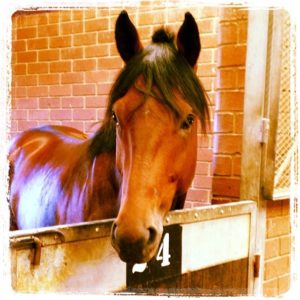
Louis The King at home (courtesy Woodruff Racing)
John is not one to boast about his horses, but he cares for them deeply and it is obvious how very much it means to have ‘his’ stallion getting a chance to shine. “I really hope this will inspire people to look at Blackie’s pedigree a little closer and realise the genetic potential he offers. He’s a dual Group 1 winner and was Champion 3yo Miler in Ireland. In his first South African crop he produced Gr placed progeny. He did the same the following year. Kochka and Louis The King are both from his 2010 crop so he’s produced a champion 2yo filly as well as a really smart 3yo from his 3rd crop. I’m particularly pleased that Louis is still entire and that he’s proving such an easy horse to work with as that really helps debunk a lot of the myths around the Storm Cat horses. Louis’ dam is no longer around which is a pity, but I hope people will look at repeating this mating with Rich Man’s Gold. Rich Man’s Gold has produced 3 or 4 very good horses as a broodmare sire and I predict that he’s really going to come into his own on that score. One can take a chance with modest horses and hope to get lucky, and well-bred horses may throw a lot of average types, but they will produce some spectacular horses because the blood is there. Black Minnaloushe is a very well bred horse. “
I’ll finish off with another thought from Tesio. “A horse gallops with its lungs, perseveres with its heart and wins with its character”. Saturday will tell us what Louis has to say over 2450m. And I for one, can’t wait.






